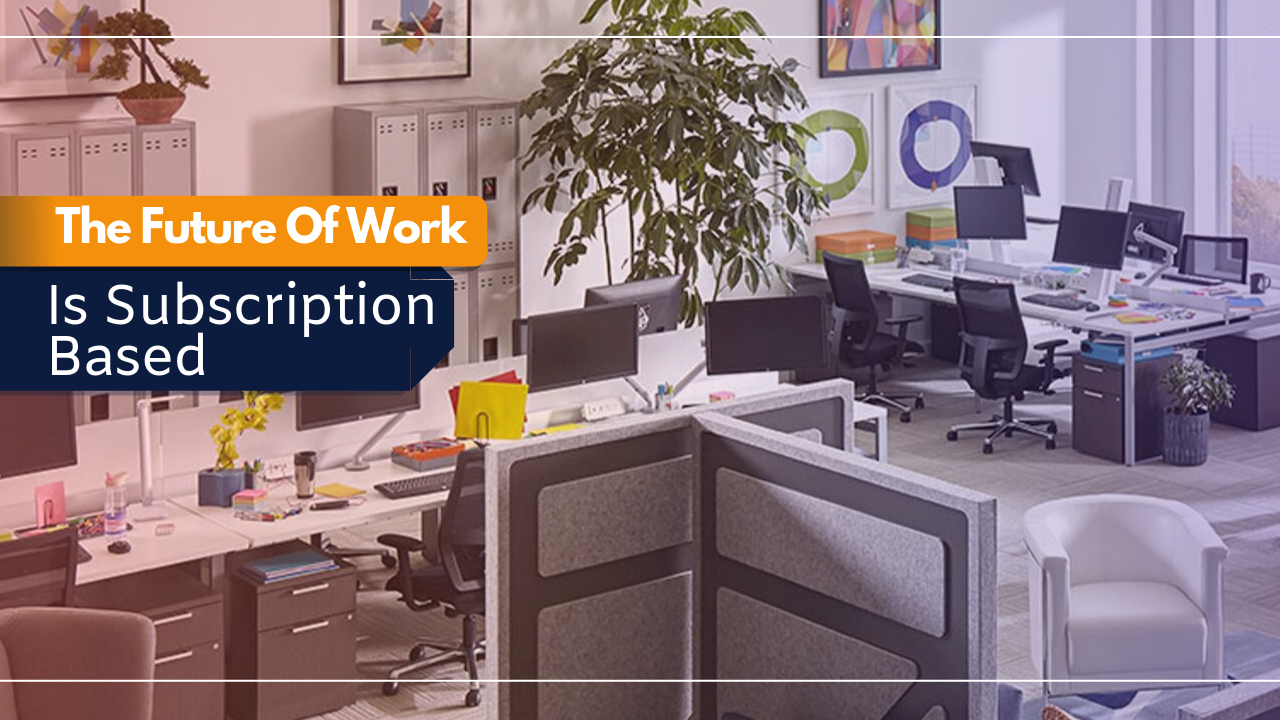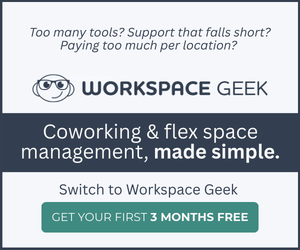- Buying things doesn’t make sense anymore for consumers and companies alike.
- In the era of experiences, people are renting (or subscribing) to what they love–furniture, workspaces, storage, clothing, the list goes on and on.
- CORT, a long-standing furniture rental company, has adapted its business model to provide Furniture-as-a-service in order to cater to the changing needs and demands of the market.
The old adage of “you are what you own” no longer holds true. Today, it would be more accurate to say that you are what you can access. In an age when people are after experiences, buying things simply doesn’t make sense anymore. After all, once someone has experienced something, they want to move to the next thing, a new experience.
So, with that in mind, the new mentality goes something like this: love it? Rent it.
Access Has Become More Important than Ownership
Magazines, beauty products, food, furniture, software, fitness equipment, storage, clothes, and plenty of other items can now be accessed through pay-as-you-go services. Pay a monthly fee and get what you want. Get tired of it or feel like changing things up? Send it back and receive something new.
The idea that you no longer need to own the products and services you use on a daily basis has given rise to a plethora of new business models servicing a wide variety of categories. While these business models were born on a consumer-centric approach, commercial applications are starting to take off: HVAC systems, furniture, software, workspace, cloud infrastructure, CRM, and many others.
This new business model focuses on creating new ways to deliver value to customers regularly, catering to their changing needs and desires and curating experiences based on that.
Rental Services in the Workplace
The sharing economy has deeply infiltrated workplaces around the world. Take, for example, the rise of the flexible workspace industry or workspace-as-a-service industry. Instead of companies having their own offices, they’re leasing them from workspace providers that deliver everything a company needs in one package or membership. It takes out the hassle of fitting out an office, dealing with facilities management, and juggling a multitude of bills. Let’s not forget flexible workspaces are cost-efficient and help companies maintain cash flow.
But workspace-as-a-service isn’t the only as-a-service model that is catering to the changing workplace needs of companies. Long-standing furniture rental companies, like CORT, offer furniture-as-a-service (FaaS) to address the changing needs of the market. FaaS has been key to helping many businesses remain agile and competitive.
And for good reason.
The workplace has significantly evolved over the past 5 years, so much so that the workplace has become a destination of sorts. People no longer have to go to it, so companies need to find ways to encourage people to want to come to it. For many, the solution has been to create carefully designed workplaces that offer unique services and amenities.
Everything from the color of the walls, the materials used, and the type of furniture is carefully considered, alongside which coffee to serve, which snacks to offer, and how many yoga sessions to hold a week.
Workplaces are adopting a hospitality mentality, but getting the basics right remains as important as ever.
Furniture as a Service
Your workplace coffee might be the best out there, but if your furniture is outdated and uncomfortable, your workplace experience simply won’t be up to modern standards. To make matters more challenging, the preferences of workers are rapidly changing today…just look at how popular the open office was 3 years ago versus now.
A couple of years ago, an ergonomic chair and desk would have been enough. Today, people expect ergonomic furniture to be stylish, modern, and customizable.
But there are a couple of key issues with purchasing and owning office furniture.
The first one is financial; new office furniture is expensive–it’s no wonder companies are reluctant to update their furniture every year. Companies today need to be asset-light and they need to maintain available capital to invest in their core competencies.
The second issue is environmental. What do you do with furniture you no longer want to use? The answer: throw it in a landfill. The environmental factor is an issue that companies need to address, as individuals are increasingly concerned about the environment and they expect companies to be proactive about protecting it and reducing their environmental footprint.
FaaS to Create Human-Centric Workplaces
Despite the various benefits that furniture-as-a-service the offers for companies, the main reason businesses are increasingly adopting this model is because it gives them the ability to match the work environment to the needs of the business, as well as the work preferences of the employees. Modern professionals want the latest technology and product model available at their fingertips. Think about how often people change their phones even though the previous one still worked well; the same goes for computers, televisions, and other products.
The workplace is no different. Everyone covets the latest, whether it’s seating and desking to support employee health, or office design that brings the outdoors in. With the many hours spent in the office, it’s no wonder companies their office design to be in the best shape for their most important asset: the people who come to work every day.















